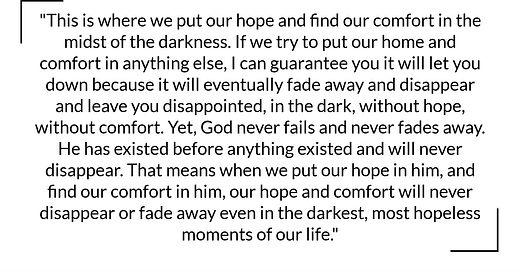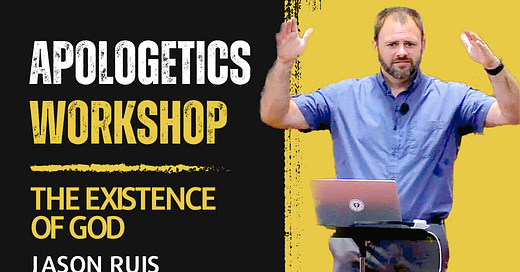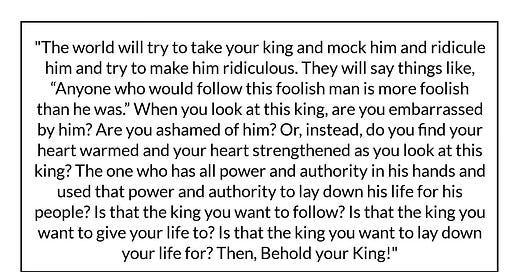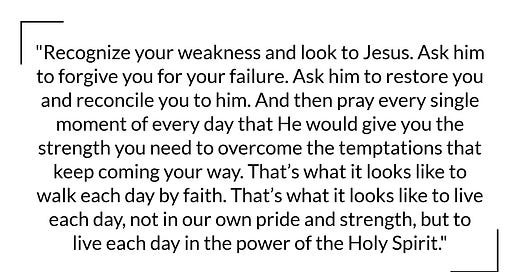
Comfort, Comfort My People
[Read Isaiah 40:1-5]
It’s no coincidence that we celebrate Christmas in the dark of winter when people feel weary and tired. It’s a reminder that we live in a world surrounded by darkness. All we need to do is turn on the news or scroll through our social media feed to be reminded of this reality. We’ll see people at war, people starving, people struggling to survive. This past week, we’ve been reminded of this reality as we heard about the school shooting at Abundant Life, heard about those wounded and killed, and heard about the students trying to recover from being present for such a tragedy. In the midst of the darkness, we long for comfort and hope.
Christmas Eve is an evening that is all about longing and anticipation—longing for something that will bring us ultimate comfort and hope. It’s a reminder to us in the darkness that there is a place to look for ultimate comfort and hope—a place to find ultimate comfort and hope in the midst of the darkness.
The passage we’re looking at tonight is a word spoken to people in the midst of deep darkness. A foreign country has swept in, wiped out most of the cities, and hauled off the rest of the people to a foreign land. They lost everything and had nobody. Everything they ever knew was gone and they wondered if light would ever break into their darkness.
It’s in that situation that God comes to them and says, “Comfort, comfort my people, says your God.” (Isaiah 40:1, ESV). God steps into their darkness and brings words of comfort, but he does more than that. Notice that he calls them MY people and he calls himself YOUR God. This is God’s reminder to a people in the midst of a seemingly hopeless situation that they are not alone—the God of the universe has claimed them as his own, and he is their God and they are his people. He will never leave them. He will never forsake them.
He also comes with a tender word of promise. He says, “Speak tenderly to Jerusalem, and cry to her that her warfare is ended, that her iniquity is pardoned, that she has received from the LORD’s hand double for all her sins.” (Isaiah 40:2, ESV). God gives his people three promises and he gives these promises as if they have already happened—it’s that certain it will come to pass that he can speak like it’s already happened. He says that their warfare has ended, which really isn’t talking about actual warfare, but fighting to survive in the world—the struggle to keep going. That’s over and done. He says that their iniquity has been pardoned, which is talking about the fact that their sins will be forgiven. Finally, he says that they have received double for their sins, which is most likely talking about the way in which God restores our suffering in darkness with a double blessing.
In many ways, God’s word of comfort to those in darkness is, “This will not last forever. Eventually, I will come and deliver you. Eventually, I will come and break light into your darkness.” Or, to use another line from the Bible, your sorrow will turn into joy.
This is where we put our hope and find our comfort in the midst of the darkness. If we try to put our home and comfort in anything else, I can guarantee you it will let you down because it will eventually fade away and disappear and leave you disappointed, in the dark, without hope, without comfort. Yet, God never fails and never fades away. He has existed before anything existed and will never disappear. That means when we put our hope in him, and find our comfort in him, our hope and comfort will never disappear or fade away even in the darkest, most hopeless moments of our life.
I realize some people don’t think that’s a big deal, or a great promise, but they don’t realize the power and strength that comes through putting our hope and comfort in the eternal God. Listen to these portions from the book of 2 Corinthians: “We are afflicted in every way, but not crushed; perplexed, but not driven to despair; persecuted, but not forsaken; struck down, but not destroyed…So we do not lose heart. Though our outer self is wasting away, our inner self is being renewed day by day. For this light momentary affliction is preparing for us an eternal weight of glory beyond all comparison, as we look not to the things that are seen but to the things that are unseen. For the things that are seen are transient, but the things that are unseen are eternal.” (2 Corinthians 4:8–9, 16-18; ESV). If you only put your hope and comfort in things that you can see, they will always fade away and let you down. If you want to be able to live like this, you need to place your hope and comfort in someone who is eternal and faithful.
In the midst of this promise of comfort, God gives a call to action. He says, “A voice cries: “In the wilderness prepare the way of the LORD; make straight in the desert a highway for our God. Every valley shall be lifted up, and every mountain and hill be made low; the uneven ground shall become level, and the rough places a plain.” (Isaiah 40:3–4, ESV). Prepare the way of the Lord. The picture here is that the Lord is coming to save his people—to deliver them from the darkness, from their hopeless situation. He’s coming. So he calls his people to get things ready—to remove any obstacle to his coming—anything that would stand in the way, or slow him down as he comes to rescue them.
Ultimately, as we find out later on in the Bible, this is talking about our hearts. John the Baptist was sent to fulfill this message—to help the people prepare the way for the coming of Jesus. What was his message for the people so that they would prepare their hearts for Jesus? It was a message of repentance. He would repeatedly say, “Repent, for the kingdom of heaven is at hand.” (Matthew 3:2, ESV). This is basically his way of saying, “Jesus is coming to bring deliverance and salvation for his people. If you want to prepare the way for him, you need to repent and turn to him and seek him with all your heart.” That is how you prepare the way.
Then we read, “And the glory of the LORD shall be revealed, and all flesh shall see it together, for the mouth of the LORD has spoken.”” (Isaiah 40:5, ESV). The promise was that eventually they would see the glory of the Lord—actually everyone would see the glory of the Lord. And throughout scripture, the glory of the Lord is described as a bright light. So, this is saying that eventually, the Lord will come and his light will break through and overcome the darkness for his people. We can be certain of it because he has spoken and he does not lie.
This is why we see all of this glory and light surrounding Jesus’ birth. You hear about shepherds working in the darkness, all of a sudden surrounded by light and the glory of the Lord. You hear the story of the Magi who followed a light in the midst of the darkness—a light which led them to Jesus. Jesus’ birth was the initial moment that God’s light broke into the dark world and pushed back the darkness. The night Jesus was born was the ultimate reminder that God sees our pain and struggle, hears our cries for help, and so he came to bring us comfort, hope, and salvation in the midst of our darkness. It’s the ultimate reminder that the darkness of this life will not last forever.
It’s also a moment that creates a longing for something more. We experience salvation and comfort and hope in this life, but we still live surrounded by pain and darkness. We long for the day when we will be completely set free from these things, a day when there will be no more darkness. And we’re thankful that God has given us that promise as well. We look forward to a day that looks like this: “And I heard a loud voice from the throne saying, “Behold, the dwelling place of God is with man. He will dwell with them, and they will be his people, and God himself will be with them as their God. He will wipe away every tear from their eyes, and death shall be no more, neither shall there be mourning, nor crying, nor pain anymore, for the former things have passed away”…And night will be no more. They will need no light of lamp or sun, for the Lord God will be their light, and they will reign forever and ever.” (Revelation 21:3–4, 22:5; ESV).












